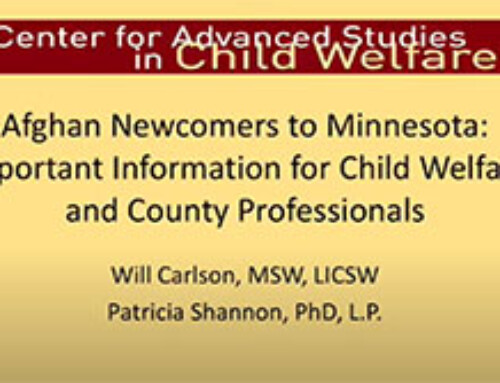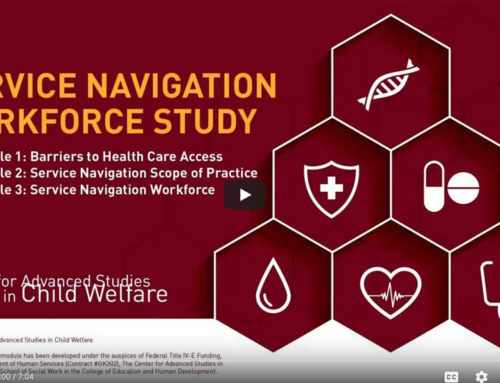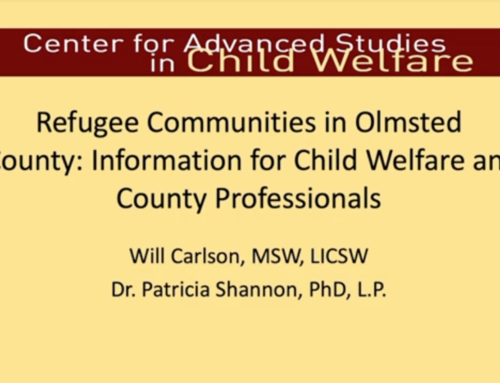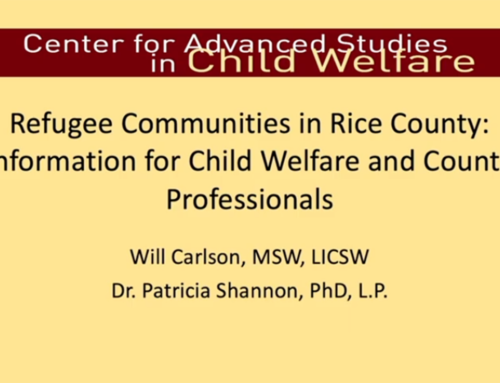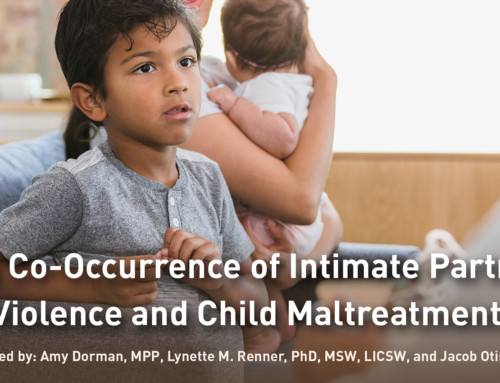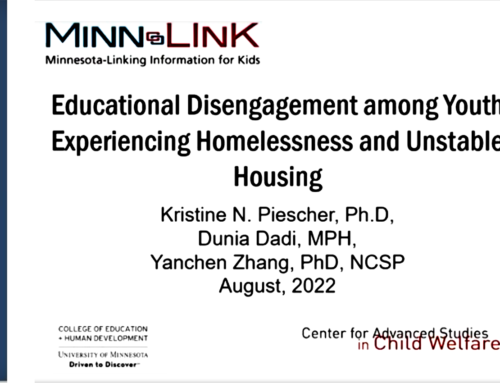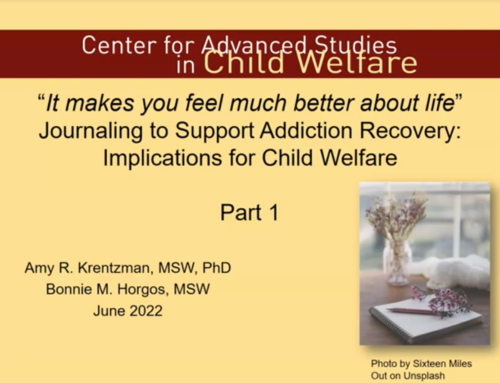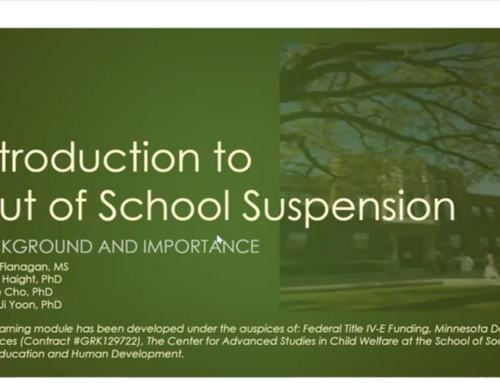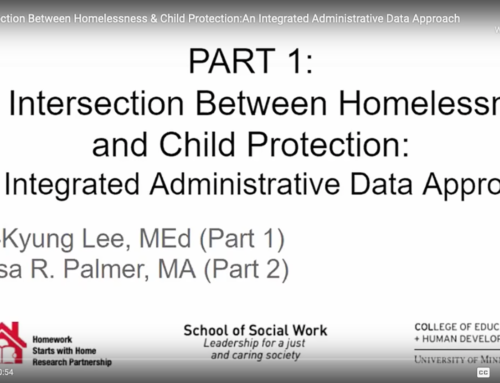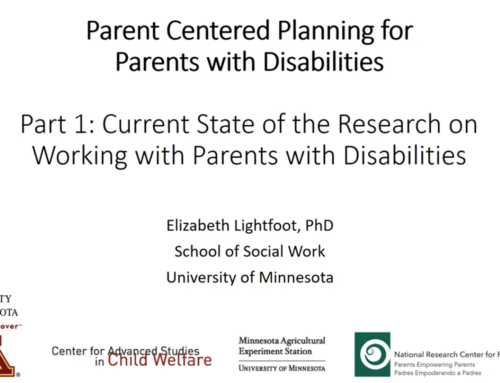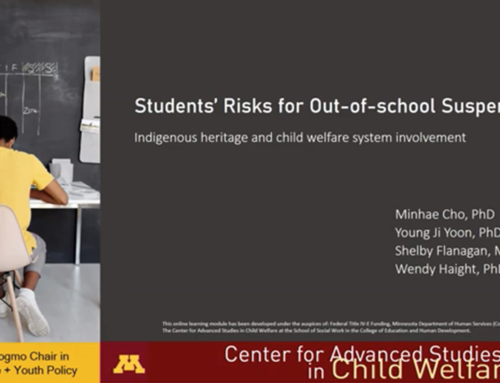Authors: Amanda Moses, MSW/MPH Student, Rukmini M Avadhanam, PhD Candidate Learning Technologies, Alyssa Meuwissen, PhD Developmental Psychology
Published: June 2022
Description: In this three-part module, participants will explore a variety of concepts in order to strengthen skills in work with parents, families, and children as child welfare professionals. Through brief lectures, exercises, and reflection, participants will be able to apply strategies in infant mental health principles, early childhood and development principles, and cultural humility principles in order to be as effective as possible in practice. It is recommended that the modules go in order from: Early Childhood and Development, Building Cultural Humility in Partnership With Parents & Families, and Using Infant Mental Health Principles.
For more information on our Online Modules, see the Online Module FAQ here.
After you have watched this module, please return to this page and fill out the form below to download your course certificate.
